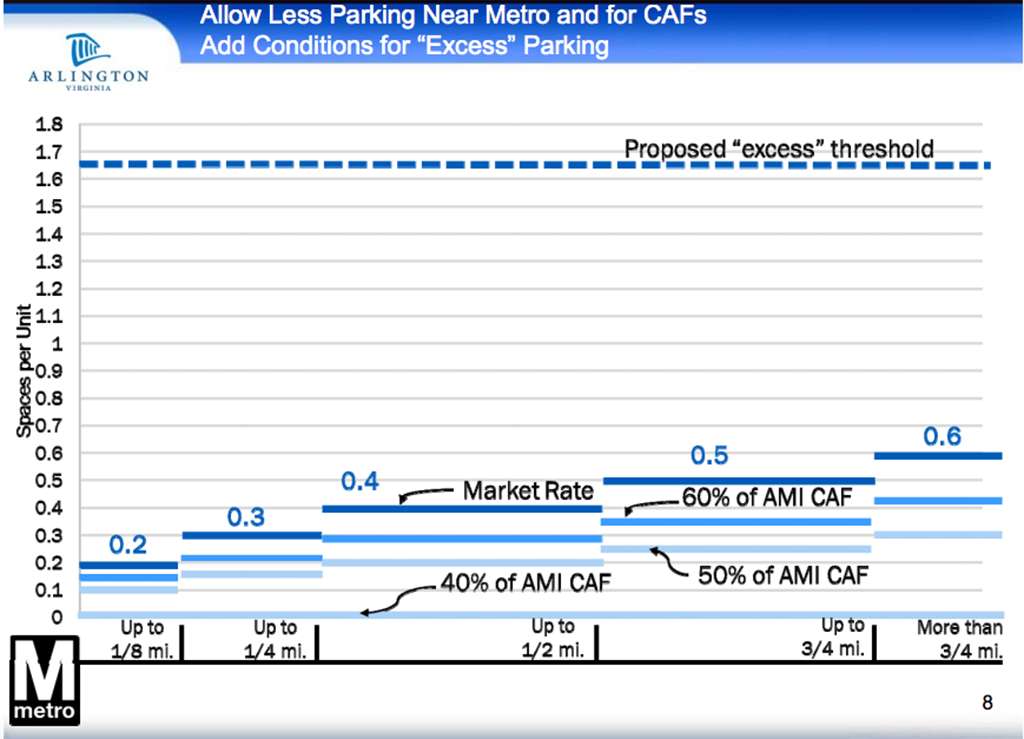Arlington County Board members wrestled last night with a plan to substitute car parking spaces for spots for bike and car-sharing at new apartment and condo buildings near Metro stations.
The proposal, put together by county staff as part of a number of changes to parking policy under discussion at a Tuesday work session, is meant to encourage developers to contribute to other transit options.
Staff recommended that a developer providing a Capital Bikeshare station could substitute that for for up to four car parking spaces, depending on its size, or bike parking could be exchanged for two parking spaces. One car-sharing space, provided for a private company like Zipcar, could be in place of five spots.
But Board members questioned why the provision for different transit means is tied to reducing car parking spaces, especially near Metro stations, as adding such amenities is becoming a more standard practice in developments across the region.
“It bothers me that going to suggest that we’re not going to get these things until we go down to the minimum [parking ratio],” said Board chair Jay Fisette. “These are things that should be part of every site plan.”
Among the other recommendations put forward by staff, developers could request fewer parking spaces the closer a property is to a Metro station, with some committed affordable housing units not being required to have any parking spaces if they are within an eighth of a mile of a station.
Board member John Vihstadt argued that orienting the changes in parking policy around Metro, which would allow developers to provide fewer spaces at new buildings if they are close to a station, might be misguided given the drop in ridership due to the system’s ongoing safety concerns and year-long SafeTrack rebuilding program.
Vihstadt said that drop in ridership was “casting a pall” over the discussion, but county transportation director Dennis Leach said it was important to attract residents to such buildings who “build a lifestyle” around Metro. Vihstadt requested further data on the county’s declining ridership, which Leach said has also been hampered by more teleworking and other factors.
A major addition by staff to a report in March, by a residential parking working group on the new parking policy, is a requirement that developers provide for dedicated visitor parking.
Stephen Crim, a parking planner in the county’s Department of Environmental Services, said that change came after concerns from nearby residents that cars would park on their residential streets, especially those of visitors who have few options.
Leach noted that the parking garages in neighborhoods like Crystal City and Pentagon City are under-utilized, especially by visitors, and that DES could do even more to promote use of those spaces alongside the various Business Improvement Districts in the county.
Staff and County Board members agreed that while the policy still needs work before approval, it is aspirational and designed to attract residents who would prefer to have minimal, if any, car use.
“We are all seeking to hasten a future that we are interested in, which is a more multimodal corridor especially with fewer cars and more people taking alternatives to the extent that it suits them and choices that allow them to do so,” said Board vice chair Katie Cristol.



